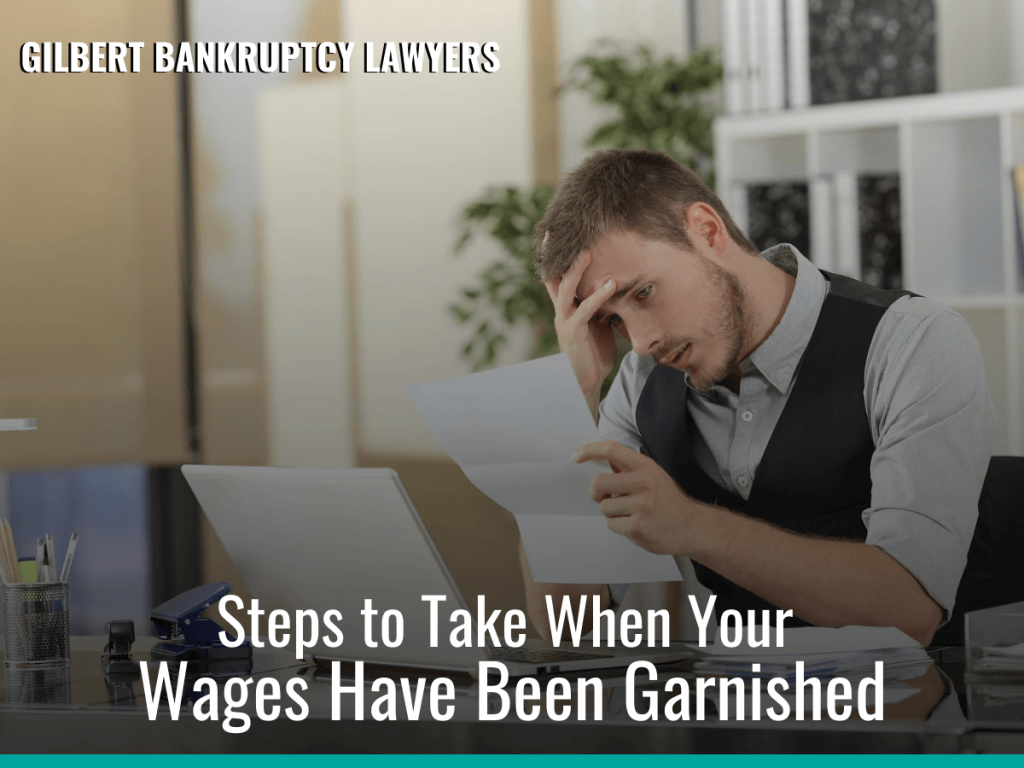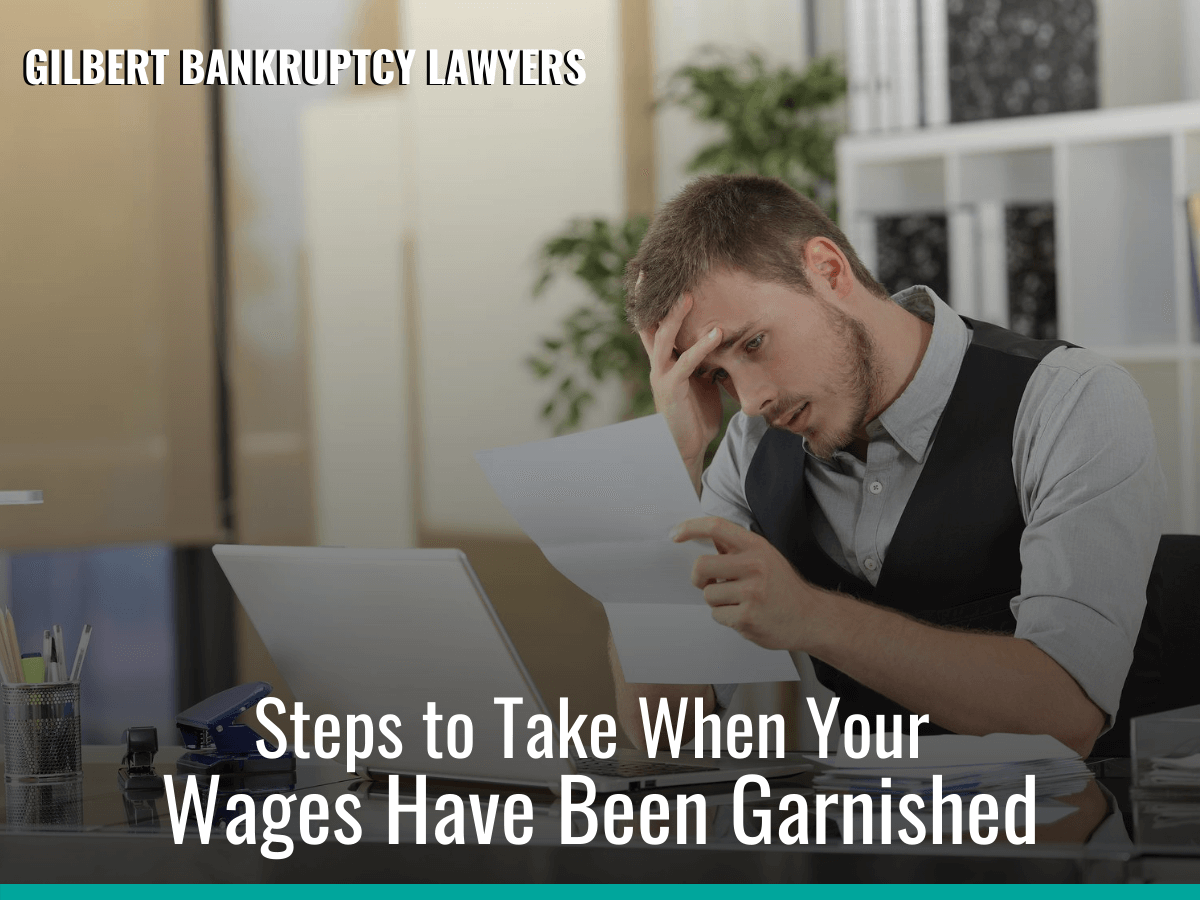Steps to Take When Your Wages Have Been Garnished
Your creditors have a number of legal options available to them if you do not pay what you owe. One of those options is wage garnishment, which automatically takes money out of your paycheck (your employer would send the money to the creditor instead) or takes money out of your bank account.
If your debt problems get to the point where your wages are being garnished, you should consider talking to a Gilbert bankruptcy attorney about the debt relief possible through bankruptcy. Filing for bankruptcy will put an immediate stop to the wage garnishment and will help you get a better handle on your finances.
There are other steps you can take to deal with wage garnishment other than filing for bankruptcy, but those options won’t deal with the underlying financial problems that have led to the garnishment. It’s important that you better understand the garnishment process before you can understand the best options to take to stop it. Here’s what you need to know:
Judgement
Before a creditor can garnish your wages, they have to file a lawsuit against you and get a ruling in their favor. You will be notified about the lawsuit, and you will likely show up in court for it. This isn’t a process that’s going to happen without your knowledge.
If the court decides that you are responsible for the debt, it may order you to do so on your own, or it may allow for action to be taken, such as property to be seized or wages to be garnished. Again, this is something that you will know has happened. You aren’t going to be taken by surprised when money starts being taken out of your paycheck or your bank account.
Writ of Garnishment
After your creditor receives the judgement in their favor, they must present your bank or employer with an official document known as a Writ of Garnishment. Once the bank receives this document, it will freeze the funds in your account to prepare for paying your creditors. It won’t matter if you have more money in your account than what you owe your creditor.
Know that the bank is likely to freeze the funds in any account in which your name is attached – including accounts you hold with your spouse or accounts you opened on behalf of your children. You may want to make changes to your account ownership if you want to protect those funds that are meant for others.
Claim of Exemption
You may be able to put a stop to your funds being garnished if you file a Claim of Exemption and it is approved. You should file this claim within 10 days of the Writ of Garnishment being issued.
Some part of your wages may be exempt – you need some money to live on, after all. Other finances, such as Social Security disability payments, child support, and so on, may be completely exempt from garnishment. Unfortunately, your bank may not distinguish these sources of income, so you will need to either keep separate accounts for them or seek protection from the courts. You will need to work with an Gilbert Bankruptcy attorney to determine what money is exempt and how to protect it.
File for Bankruptcy
If you are facing a Writ of Garnishment, chances are good that you are struggling with debts and the ability to make ends meet. Filing for bankruptcy can put an immediate end to the wage garnishment while also giving you a way to manage your debt. If you file for Chapter 7 bankruptcy in Gilbert, you can discharge of your unsecured debt, such as credit card debt. If you file for Chapter 13 bankruptcy, you can put your debts under a reorganized repayment plan that lasts three to five years. Either way, you can free yourself of your debt or get it under a repayment plan that you can afford.
If you are struggling with debt, call Gilbert Bankruptcy Lawyers to learn more about your options for debt relief. A Gilbert bankruptcy attorney from our team can help you understand how each of the bankruptcy types can benefit you best. Our goal is to help you get the maximum debt relief possible. Call us in Gilbert today to talk with a bankruptcy attorney about how you can finally get your finances under control and free yourself of debt.
Published By:
Gilbert Bankruptcy Lawyers
Office: 480-448-9800
Email: info@myazlawyers.com
Website: https://gilbertbankruptcylawyers.com

